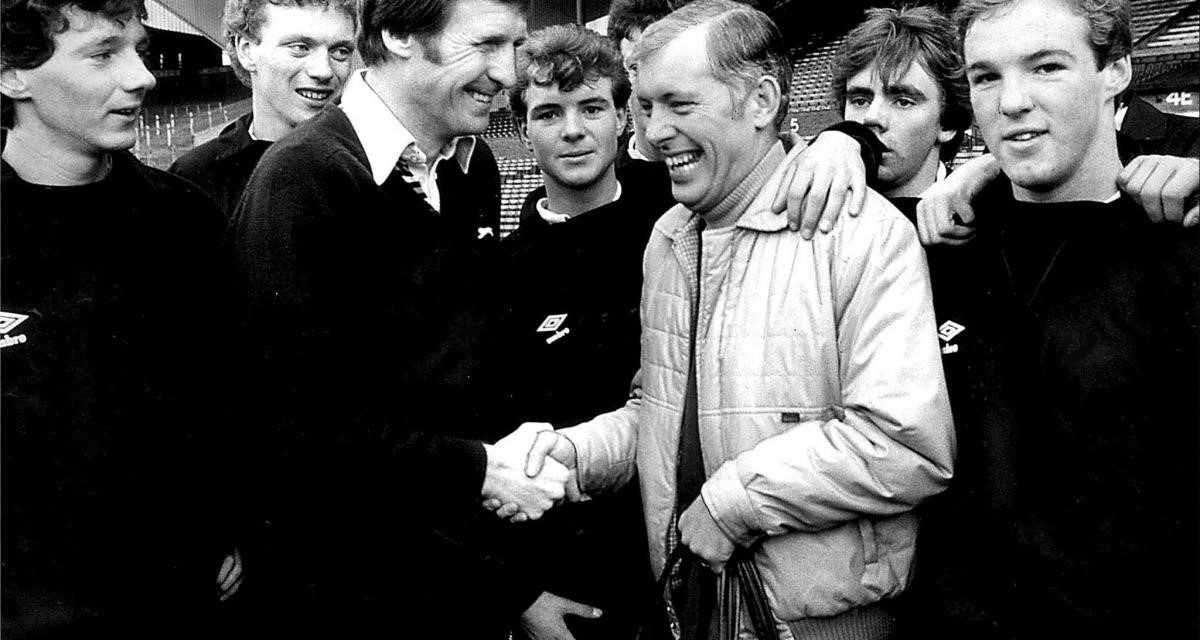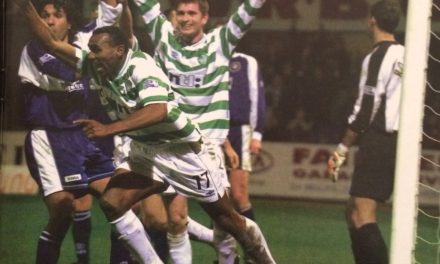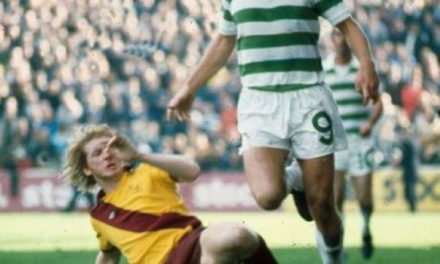Frank Connor was a Celtic goalkeeper for a short time in the early 1960’s buy it’s his coaching career at Parkhead for which he will always be best remembered.
By 1978, Celtic’s youth set up had declined after a conveyor belt of quality players had come through the ranks during the 1960’s and early 1970’s. Billy McNeill had just replaced Jock Stein as new Celtic manager and he immediately brought Frank Connor to the club entrusting him with coaching the reserves and preparing promising youngster for a place in the first team.
Frank’s mixture of discipline and motivation was hugely effective and by 1980 Celtic had the best reserve set up in Scotland. Trophies were won at that level but the priority for any reserve side is always to provide young players for the first team and Frank Connor did a magnificent job in that respect. A new generation of young Celts broke through into the first time and made tremendous impressions. Within a couple of seasons, Charlie Nicholas, Pat Bonner, Mark Reid, Willie McStay, Davie Moyes, Danny Crainie, and a prodigious Paul McStay, all made their way into Celtic’s first eleven. Such was the talent in Celtic’s reserve set up that they were unbeaten for two year at that level. Others such as John Halpin, John Weir and Jim Duffy were very unlucky not to make the break through despite being talented players who went on to have good careers in the game. What they all had in common was the all benefitted tremendously from Frank Connor’s support and guidance.
Frank’s talents were admired in other places and he left to manage Berwick Rangers in 1980. Ironically, within weeks of arriving at Berwick, Celtic were drawn in the Scottish Cup at Shielfield Park and the wee Rangers put up a good fight despite Celtic’s 2-0 victory. When Jock Wallace returned to Scotland to manage Motherwell in 1982 he turned to Frank as his assistant manager. At first it seemed a strange mix with Wallace the arch-Rangers man and Frank steeped in his beloved Celtic, but both men were to work well together.
Celtic came calling again in 1983 during a time of need. The Celts had parted ways with the managerial duo of Billy McNeill and John Clark, in highly controversial fashion. In an unusual move, Frank was appointed as assistant manager before Davie Hay was announced as manager. Celtic’s autocratic chairman, Desmond White, clearly had a preference for Frank but there were concerns at the time that Davie Hay had been undermined at an early stage by not being permitted to choose his own man as assistant manager.
Hay and Connor had a difficult time as Celtic lost star strikers, Charlie Nicholas and George McCluskey to English sides and with the ‘New Firm’ of Aberdeen and Dundee United at their peak under Alex Ferguson and Jim McLean. There were no trophies by May 1985 and there was huge pressure on Celtic to deliver the Scottish Cup. A magnificent late rally saw the Celts win by 2-1 to seal the first success for the Hay-Connor managerial duo.
On 1 February 1986, Celtic travelled to Dens Park to beat Dundee 3-1 in what had been their best performance for some time. The next morning, Celtic fans were shocked to read that Davie Hay had sacked Frank Connor, because there had been disagreements between the two. It was a brave move by Hay but must have been devastating for Frank to leave Celtic in such a fashion.
In the summer of 1993 Frank returned to Parkhead for a fourth time when Liam Brady brought him back on to the coaching staff. Things did not go so well and in October Brady resigned following a 2-1 defeat against St Johnstone at McDiarmid Park. Frank Connor was then made Celtic interim manager whilst the board looked for Brady’s successor. In the four games Frank was manager, Celtic won three and drew one. This included very impressive wins over Sporting Lisbon in the UEFA cup and a fine 2-1 victory over Rangers at Ibrox.
The Celtic board were under tremendous pressure both on and off the park and in one final throw of the dice, the board appointed Lou Macari in preference to opting for Frank. With hindsight there will always be the feeling that he could have been the ideal manager Celtic required at that time. He had instilled some much needed fighting spirit which the fans reacted to, and the players had responded well to Frank’s managerial style. It’s certainly hard to believe that Celtic’s results could have been worse than what Macari was to achieve.
Frank Connor’s name may not be as illustrious as some in Celtic’s history but in four different roles and in four different decades he served Celtic magnificently. And for that he will be remembered with great affection.
It was with great sadness that we heard of his passing this week. May he rest in eternal peace.





